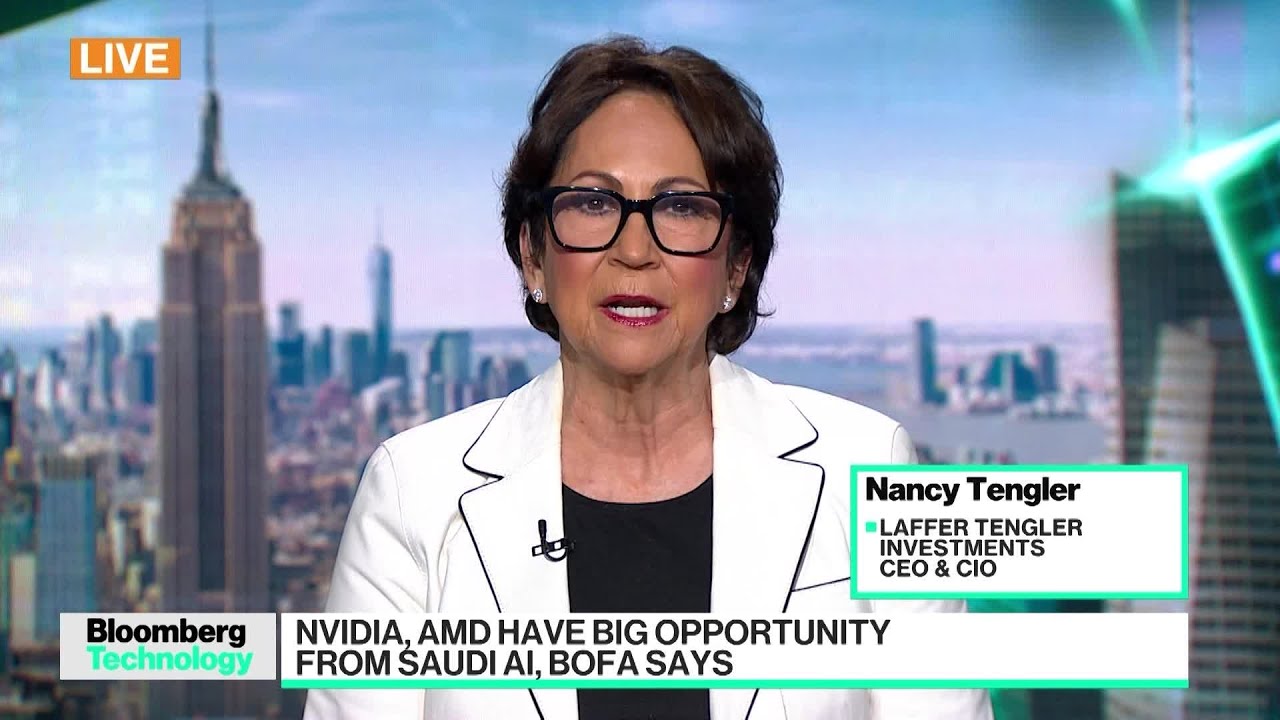The video discusses the optimistic outlook on AI investment buildout, highlighting recent deals, IPO activity, and the strategic importance of software and hyperscaler companies amid geopolitical and export restrictions. It emphasizes a long-term bullish stance on AI-related firms like NVIDIA and Microsoft, while advising investors to shift focus from hardware to software for sustained growth in the evolving market landscape.
The discussion begins with a focus on recent deals between leading American technology companies and Saudi Arabian investors, highlighting a positive outlook on these investments. The speaker emphasizes that while the rhetoric is optimistic and potentially beneficial for company earnings, the actual impact depends on the timing and volume of the investments. These investments are seen as a way to compensate for lost revenue from China, providing a psychological boost to the market, even if not dollar-for-dollar. The speaker notes that they have been actively buying shares of AI-related companies, including Tesla, since early in the year, indicating a long-term bullish stance on the AI buildout, which they consider the potential fourth industrial revolution akin to the productivity gains of the 1990s.
The conversation then shifts to recent IPO activity, specifically eToro Group’s US listing, which is indicated to open significantly above its IPO price. The speaker views this as a sign of green shoots in the US IPO market, driven by increased retail investor engagement. While expressing some caution about the day trading activity, they see this as a positive development overall for the economy and market sentiment. The discussion underscores the importance of M&A activity and the launch of new investment strategies, particularly in the mid-cap space, as signs of a resilient and evolving market environment.
Next, the focus turns to the US-Gulf infrastructure relationship and the implications for the semiconductor industry, particularly companies like NVIDIA and AMD. The analysis from Bloomberg Intelligence suggests that NVIDIA will generate substantial revenue from the Gulf region through 2027, while AMD’s exposure is comparatively smaller. The conversation highlights the importance of navigating export restrictions and the potential impact of new US rules on China, with the speaker optimistic that chip sales to China will continue in some form. They also discuss how new markets, especially in India, could help offset restrictions and sustain revenue streams for these companies.
The discussion then touches on geopolitical considerations, noting that the Trump administration’s approach to isolating adversaries like China, Russia, and Iran through diplomatic visits to the Middle East, is part of a broader strategy. The speaker points out that despite export restrictions, companies like NVIDIA and AMD will still sell chips to China, albeit with some limitations. They emphasize the importance of understanding how these restrictions will evolve and how companies will adapt their sales strategies to new geopolitical realities, balancing market access with national security concerns.
Finally, the conversation concludes with a focus on market valuation shifts, particularly NVIDIA surpassing Apple as the second most valuable company globally, with Microsoft remaining at the top. The speaker advises investors to favor software and hyperscaler companies like Microsoft, NVIDIA, Palantir, and Oracle, over hardware-focused firms like Dell. They recommend adding to software stocks, which are poised for further growth in the AI and infrastructure buildout, and suggest reallocating from hardware names that have already experienced significant gains. Overall, the message underscores a strategic shift toward software and AI-driven companies as the next phase of market expansion.
